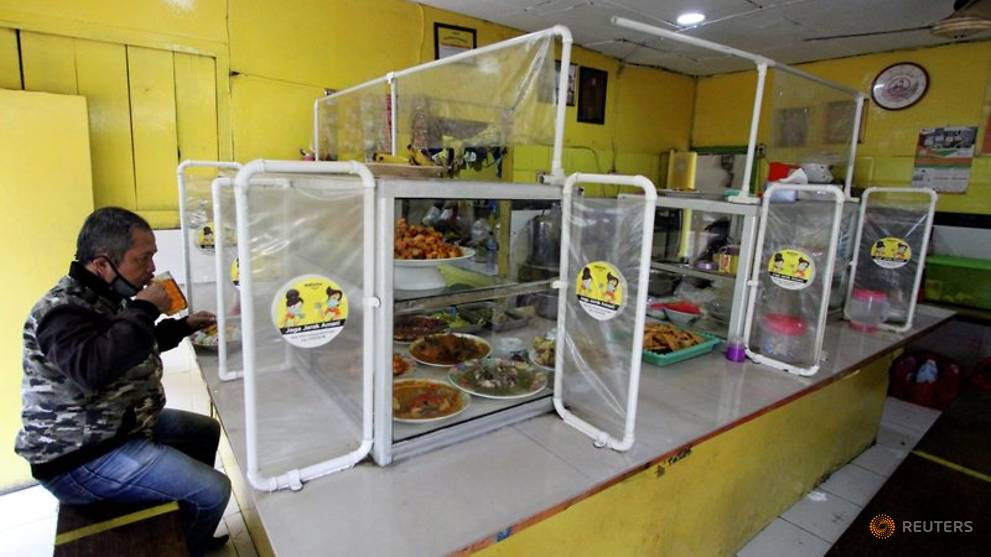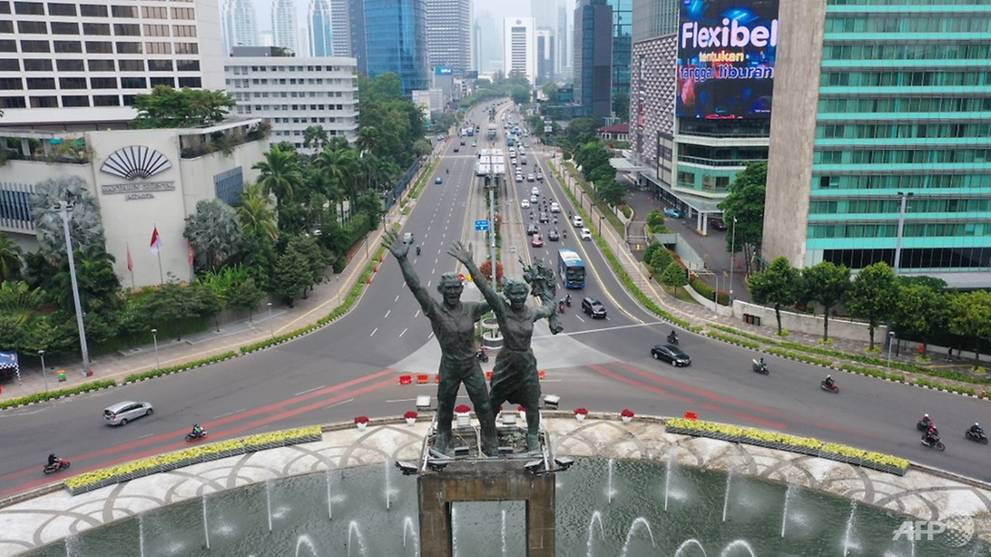
Business braces for impact as Jakarta heads into second COVID-19 lockdown
JAKARTA: The markings of a rollercoaster year are plastered over Sutiwet’s small Jakarta restaurant – plastic barriers on the counters, stickers on the glass urging customers to wear masks, and a gallon of water out front for people to wash their hands.
But just as life in the Indonesian capital was starting to return to normal, the city’s 10 million residents are heading into partial lockdown for the second time.
Jakarta’s tightened social restrictions, effective from Monday (Sep 14) for two weeks, mean businesses, malls and houses of worship can only operate at limited capacity, while dining in at restaurants and cafes is not allowed.

Small business owners such as Sutiwet, who like many Indonesians goes by only one name, are bracing themselves for the economic impact.
"We almost managed to survive the first round of large-scale social restrictions, and here comes another one," Sutiwet, 45, told Reuters.
"For now, I am relieved that we are almost surviving, but it will definitely have an impact on income."
READ: Premature reopening, gatherings among factors that led to COVID-19 clusters in Jakarta workplaces
The second round of social restrictions, known locally as "PSBB", comes amid a spike in COVID-19 cases and as Jakarta's 67 designated coronavirus hospitals near full capacity.
Indonesia is the hardest-hit country in Southeast Asia, with 221,523 infections and 8,841 deaths.
As of Monday, Jakarta has reported more than 55,000 cases with nearly 1,500 deaths.
National COVID-19 task force chief Doni Monardo said 20 out of 67 Covid-19 referral hospitals in Jakarta had reported occupancy rates in their intensive care units at over 60 per cent.
Indonesia's president Joko Widodo has announced that 15 hotels will be used to quarantine COVID-19 patients with mild or no symptoms.
Jakarta administrators have also converted part of an athletes' village built for international sporting events for asymptomatic patients who need to be quarantined.
"The point is to provide more places for self-isolation so people won't have to quarantine at home with inadequate health standards," Monardo said Monday.

Months into the pandemic, businesses are feeling the crunch, said Shinta Khamdani, from the Indonesian employers' association.
"This (PSBB) policy is very deadly for us, depressing demand so much so that there is no driver for businesses to improve our economic performance," said Khamdani. "Right now, businesses are desperately trying to maintain their existence."
READ: Contact tracers in Indonesia face threats, assaults in fight against COVID-19
If social restrictions are implemented long term, many small and medium enterprises would not survive, she said.
Indonesia's government has the difficult challenge of balancing health and economic concerns, as the country faces a recession in the third quarter.

Heading to work on Monday, Lila Pratiwi, 34, said she was trying to adapt.
"Public transportation is my biggest concern, the government should pay attention as most of the new clusters are from offices and public transport," she said. "That's why I decided to walk today."
BOOKMARK THIS: Our comprehensive coverage of the coronavirus outbreak and its developments
Download our app or subscribe to our Telegram channel for the latest updates on the coronavirus outbreak: https://cna.asia/telegram